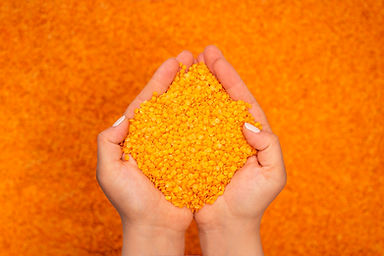
Protein! What Why Where How!
As a Personal Trainer, I am often asked about the importance of protein in a healthy diet. Protein is an essential macronutrient that plays a key role in the growth and maintenance of the body's tissues and organs. There are at least 10,000 different proteins that make us what we are, and all of them are made up of 20 different amino acids. Without adequate protein intake, we can experience muscle loss, fatigue, and other health complications. That's why it's important to make sure to consume enough protein through our diets on a regular basis.
What is Protein?
Proteins are large, complex molecules that play many critical roles in the body. They do most of the work in cells and are required for the structure, function, and regulation of the body’s tissues and organs.
Our hair, skin, muscles, and almost every part of our body are made up of proteins and make us what we are.
As previously stated protein is made up of 20 amino acids which our body can't store, but we make either from scratch or from modifying others. 9 amino acids are what are considered essential as we cannot make them these must come from food, they are; histidine, isoleucine, leucine, lysine, methionine, phenylalanine, threonine, tryptophan, and valine.

Why is Protein Important?
Proteins are crucial for a wide range of biological processes, such as enzyme activity, cell signalling, molecule transport, and immune response. Their structure and function depend on the sequence of amino acids they possess, and any abnormalities or deficiencies may result in various diseases. Ultimately, proteins are essential for the body's health and proper functioning.
Your body also needs protein to repair broken down muscles used during exercise, which is why excess protein is required when one is participating in regular exercise.
Where to Get Your Protein?
All foods contain protein, amounts and the types of protein depends on what food you're eating. Some foods are complete proteins which mean they contain all 9 essential amino acids, and some are incomplete, the following is a list of examples High Protein foods, split between complete and incomplete proteins.
Complete Proteins
Meat (red meat, fish, poultry etc)
Eggs
Dairy (milk, cheese)
Soy (soy milk, tofu, tempeh, miso, edamame etc)
Quinoa
Buckwheat
Incomplete Proteins
Nuts and Seeds
Legumes (beans, lentils, chickpeas etc)
Vegtables (broccoli, asparagus, artichoke hearts, spinach etc)
Wholegrains (brown rice, wholewheat bread)
How Much Protein Do I Need?
This is a question I get asked a lot, and you will see being answered a lot in fitness groups, Facebook pages, Instagram post, etc, and more often than not people are recommending way higher amounts than is needed. Our body can only process so much protein, based on how much we work out, the type of exercises we are doing and the shape we are currently in. Protein cannot be stored in the body, so protein that isn't absorbed will be broken down and stored as fat, just as any excess calories. Also, due to the high total and saturated fats in many high protein foods, extra protein intake can also cause an increase in blood lipids and heart disease. This can also put extra pressure on your kidneys and cause an increased risk to those predisposed to kidney disease.
So how much is actually recommended? Well, the answer may surprise you, the recommended daily amount is 0.75-0.8g per Kg of bodyweight for people under 40, once muscle mass loss begins to set it it is recommended to up your protein intake to 1-1.2g per Kg. If you are exercising regularly regardless of your discipline according to Position of the Academy of Nutrition and Dietetics, Dietitians of Canada, and the American College of Sports Medicine that the current data suggest you should be looking at 1.2 to 2.0g per kg bodyweight (0.5 to 0.9g per pound), however the higher end of this is meant for athletes during intense training programs, and during periods of calorie deficit in order to maintain muscle mass. The average person working out should be looking at up to 1.6g per kg of bodyweight.
Remember that protein should be spread equally throughout the day, and not to try and cram them all in in the morning or at the end of the day because you haven't reached your intake goal. Just start again tomorrow.
Sources:
https://www.canr.msu.edu/news/protein_intake_for_athletes
https://www.sciencedirect.com/science/article/abs/pii/S221226721501802X
https://www.bhf.org.uk/informationsupport/heart-matters- magazine/nutrition/protein#:~:text=How%20much%20protein%20do%20I,the%20palm%20of%20your%20hand.
https://www.mayoclinichealthsystem.org/
https://www.nutrition.org.uk/healthy-sustainable-diets/protein/?level=Health%20professional




